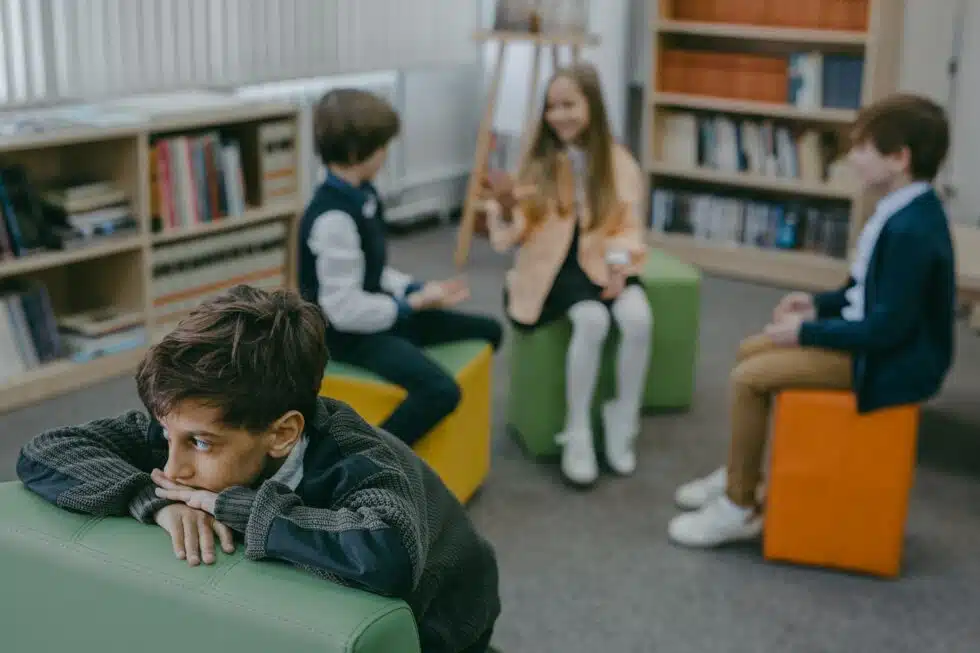Childhood is a time of innocence, wonder, and discovery. However, for many individuals, it is also a period marred by the hidden scars of trauma. Childhood trauma encompasses a wide range of experiences, from physical and emotional abuse to neglect and household dysfunction. Sadly, these distressing events can have lasting impacts that extend well into adulthood, shaping the lives of survivors in profound ways.
As a team of clinically excellent Christian counselors, we aim to shed light on the deep-rooted impact of childhood trauma on adults. By understanding the complexities and consequences of these experiences, we can foster empathy, support, and interventions that facilitate healing and growth.
The Far-Reaching Effects of Childhood Trauma
Mental Health in Adulthood
Childhood trauma can have a profound impact on an individual’s mental well-being. Survivors are more likely to grapple with a range of psychiatric disorders, including depression, anxiety, post-traumatic stress disorder (PTSD), and substance abuse. The trauma can rewire the brain, leaving behind emotional imprints that shape how they perceive and respond to future challenges, often resulting in dysfunctional coping mechanisms.
Depression is a common outcome of childhood trauma, as survivors may struggle with persistent feelings of sadness, hopelessness, and a diminished sense of self-worth. Anxiety disorders, characterized by excessive worry, fear, and hyperactivity, can also substantially increase as you get older. Survivors often experience heightened vigilance, constantly scanning their environment for signs of danger which manifests as high anxiety.
PTSD is another significant mental health consequence of childhood trauma. Intrusive memories, nightmares, flashbacks, and emotional distress can plague survivors, interfering with their daily functioning. They may avoid situations, people, or triggers associated with the trauma, further isolating themselves from potential sources of support.
Substance abuse is a common coping mechanism for survivors seeking temporary relief from their emotional pain. The trauma-induced distress often leads individuals to turn to drugs or alcohol as a means of self-medication. Unfortunately, this makes anxiety and depression worse and leads to addiction.
Relationship Challenges
The ability to form healthy, nurturing relationships is frequently hampered by childhood trauma. Survivors may struggle with intimacy, trust, and vulnerability, as their early experiences have taught them to expect betrayal or rejection.
As a result, they may find it challenging to establish and maintain stable, fulfilling relationships, leading to feelings of isolation and loneliness. That spirals into avoiding social outings, which increases feelings of self-worth, which increases depression/anxiety. It’s a vicious cycle that’s hard to break.
Survivors may struggle with setting and maintaining boundaries, often oscillating between being excessively self-protective or allowing others to exploit them. Additionally, the distorted perception of self-worth resulting from trauma can lead survivors to seek validation through unhealthy relationships, perpetuating a cycle of abuse and dysfunction.
Intimacy can be particularly challenging for survivors of childhood trauma. Emotional closeness and vulnerability may trigger feelings of fear, anxiety, and a fear of losing control. As a result, survivors may withdraw emotionally, sabotaging the potential for deep connections and leaving them feeling disconnected and misunderstood.
Healing these relationship challenges requires a comprehensive approach that includes therapy, support networks, and self-reflection to identify and address the underlying patterns and beliefs stemming from childhood trauma.
Trauma therapy can provide a safe space to explore and process past experiences, develop healthy communication skills, and rebuild trust.
Support networks, whether through support groups or trusted friends and family, offer understanding, empathy, and validation, creating a sense of belonging and connection.
Survivors can benefit from engaging in self-reflection and self-care practices that promote self-esteem, self-compassion, and personal growth.
Physical Health Consequences
Childhood trauma not only affects psychological well-being but also takes a toll on physical health. Studies have linked early traumatic experiences to a higher risk of developing chronic illnesses such as cardiovascular disease, diabetes, and autoimmune disorders. Additionally, survivors of childhood trauma may engage in self-destructive behaviors such as substance abuse or self-harm, further exacerbating health issues.
The stress response triggered by childhood trauma can have profound effects on the body. Persistent activation of the stress response system, including the release of stress hormones like cortisol, can lead to physiological changes that contribute to the development of chronic diseases. For example, elevated levels of stress hormones can lead to increased blood pressure, heart rate, and inflammation, increasing the risk of cardiovascular problems.
- Childhood trauma also impacts the immune system. The constant state of hypervigilance and stress weakens immune function, making individuals more susceptible to infections, autoimmune disorders, and other immune-related conditions.
- Survivors of childhood trauma may adopt coping mechanisms that harm their physical health. Substance abuse, smoking, and self-harm behaviors such as cutting or excessive risk-taking can provide temporary relief but have long-term detrimental effects on the body. These behaviors further contribute to the increased risk of chronic illnesses and premature mortality.
- Breaking the cycle of physical health consequences requires a holistic approach. It involves prioritizing self-care, adopting healthy lifestyle choices, and seeking appropriate medical care.
- Engaging in regular exercise, adopting a balanced diet, and getting sufficient sleep are crucial components of promoting physical well-being.
- Seeking medical attention for any emerging health issues and working closely with healthcare professionals to manage chronic conditions is essential.
- Additionally, addressing underlying issues through trauma therapy and trauma-informed care can contribute to overall healing and reduce the physical toll of childhood trauma.
Childhood trauma casts a long shadow on the lives of survivors, infiltrating their mental, emotional, and physical well-being. However, by acknowledging the impact of childhood trauma and providing the necessary support and resources, we can empower survivors to reclaim their lives and rewrite their narratives.
Our team of Christian counselors work to spread awareness, education, and compassionate intervention. By breaking the silence and fostering a culture of healing, we can pave the way for a future where the devastating effects of childhood trauma are minimized, and survivors are offered the chance to thrive.
FIND A CHRISTIAN THERAPIST
Research shows that much of the change people experience during their time in therapy is because they felt heard and understood by their therapist–that their therapist “got them” and that the guidance they gave was relevant and applicable. Because of this, it is critical that you find a therapist whom you can connect with, whom you feel comfortable with, whom you feel “gets you.” Therefore, we encourage you to take a few minutes to read a little about each one of our therapists. If you prefer to look at the counselors nearest to you, please click the office location buttons below. Otherwise, you can meet with any of our Christian Counselors online from the comfort of your own home. If you have questions about any of them, please contact us!






